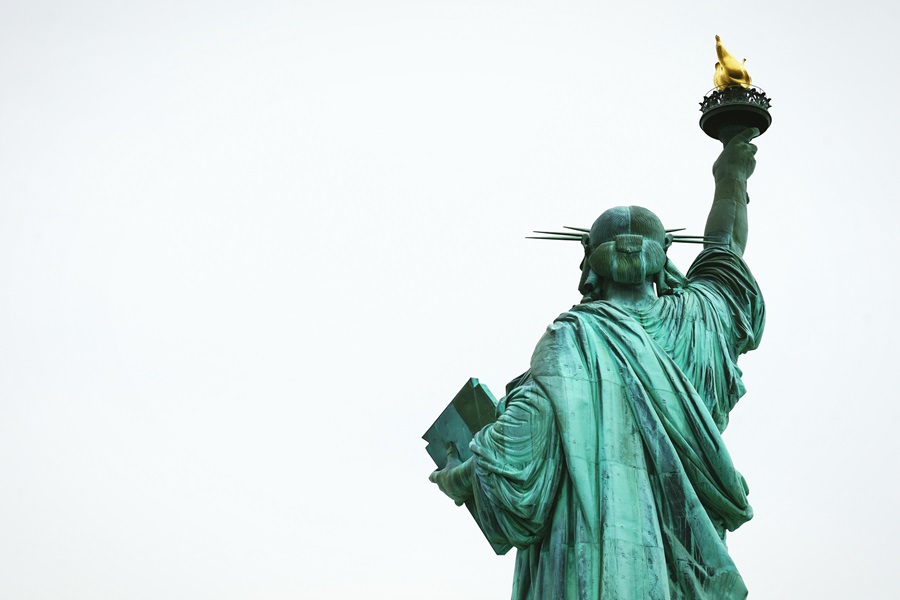This week, Gillette became the latest brand to make a big splash in the culture wars, airing a nationwide commercial that takes aim at the “boys will be boys” ethos that enables bullying, sexual harassment and abuses of power to flourish. And, much like Nike’s daring and successful foray into race relations featuring Colin Kaepernick, Gillette’s message stoked a worldwide conversation on social media, earning the leading razor company buzz, relevance and not a small amount of pushback as people debated the merits and appropriateness of its message.
Given the success of both Nike and Gillette in creating a cultural conversation on a mass scale, it’s fair to ask: Are so-called woke ads the key to breaking through and creating a lasting connection with the future of America? Should more brands consider taking a stand on important social issues affecting the world? Or do these attempts alienate more people than they attract? Do they therefore carry more risk than reward?
It’s a topic our U.S. MONITOR study, which has been helping brands understand the evolving attitudes, values and priorities of Americans since 1971, can help illuminate. While we won’t speculate about any specific brand’s strategy—only those intimately involved with the creation of these ads know their objectives, some of which may not be obvious to the outside eye—we’ll share a few insights we’ve documented as consumer activism has grown more popular over the last few years. In short, the issue is far more nuanced than it may appear, offering compelling reasons both to get involved and to stay away from this thorny, yet potentially rewarding strategy.
Why brands should consider using social-issue advocacy in marketing
The future of America appreciates clear, unapologetic messages
The Millennial and Centennial generations want more from the brands in their lives. Instead of being satisfied with products or services that just meet their functional needs, they’re increasingly looking to brands to take the lead on some of the societal problems that the U.S. government appears unwilling or unable to address.
- 79% of Millennials and 77% of Centennials agree, “More companies should take a stand on important social issues.” (Source: 2017 U.S. MONITOR)
Breaking through in today’s marketplace requires a bold approach
It’s perhaps never been more challenging for brands to craft the kind of culture-shifting messages that strike a chord with the American public. With use of ad blockers growing and attention spans shrinking, selecting one relevant cultural tension to break through in this massively fragmented media environment may be required.
- 47% of Americans (and 54% of Millennials) agree, “I use ad blocker software to avoid marketing and advertising” (Source: 2018 U.S. MONITOR)
The downside is overrated
One key factor holding companies back from being more forceful in their social advocacy efforts is the potential downside of a messy, extended consumer boycott. But while boycotts may affect a brand’s long-term reputation, studies show that they’re also rare, fleeting and more noisy than consequential, at least from a short-term sales perspective.
- 19% of Americans said they stopped or started buying from a company because of its actions or values in the past year (Source: 2017 U.S. MONITOR)
Why brands should stay away from social-issue advocacy:
Many Americans are seeking respite from political and social issues
In the Trump era, few aspects of American life are free from the influence of politics and social conflict. And while some of this development is positive—civic engagement is way up from the recent past—a significant portion of the population is looking for ways to escape the noise and rancour associated with this time in our nation’s history.
- 66% of Americans agree, “I believe too many brands are getting involved in social or political issues today” (Source: 2018 U.S. MONITOR)
Perceptions of political correctness and cultural elitism remain
While much has changed over the last two years, one residual issue from the 2016 election is the perception that Madison Avenue remains out of touch with the sensibilities of mainstream America. Given this reality, it’s essential for marketers to double down on efforts to get a true read of their target audience’s authentic values—not just those that match the company’s preferred vision or political philosophy.
According to the 2018 U.S. MONITOR, 56% of Americans agree, “Americans today are too sensitive to the concerns of racial, ethnic, religious and social minorities” (vs. 44% who agree, “Americans today are not sensitive enough to the concerns of racial, ethnic, religious, and social minorities).
It’s business, not politics
In politics, winning the majority of the vote is all that is required for victory, so strategies that stoke the passions of true believers are increasingly being favoured over broader, big-tent approaches that seek to maximise appeal among all constituencies. But unlike politics, business isn’t a one-time event or a zero-sum proposition; success often requires a strategy that encourages trial among people indifferent or even negatively predisposed to your brand. Given these different objectives, mass-appeal brands must think long and hard about deploying an approach that runs a real risk of alienating a significant portion of their potential customer base.
The bottom line? Like everything in the marketing world, there’s no one-size-fits-all approach to social issues and advertising. What may work for Nike and its base of customers may be a monumental fail for your brand and target consumers (and vice versa). But one thing is certain: social-issue advocacy is not a strategy to take lightly. Effective execution requires a deep, fact-based understanding of your target audience, a solid grasp of your organisation's core values and mission, and a smart plan of action when the inevitable backlash surfaces.

